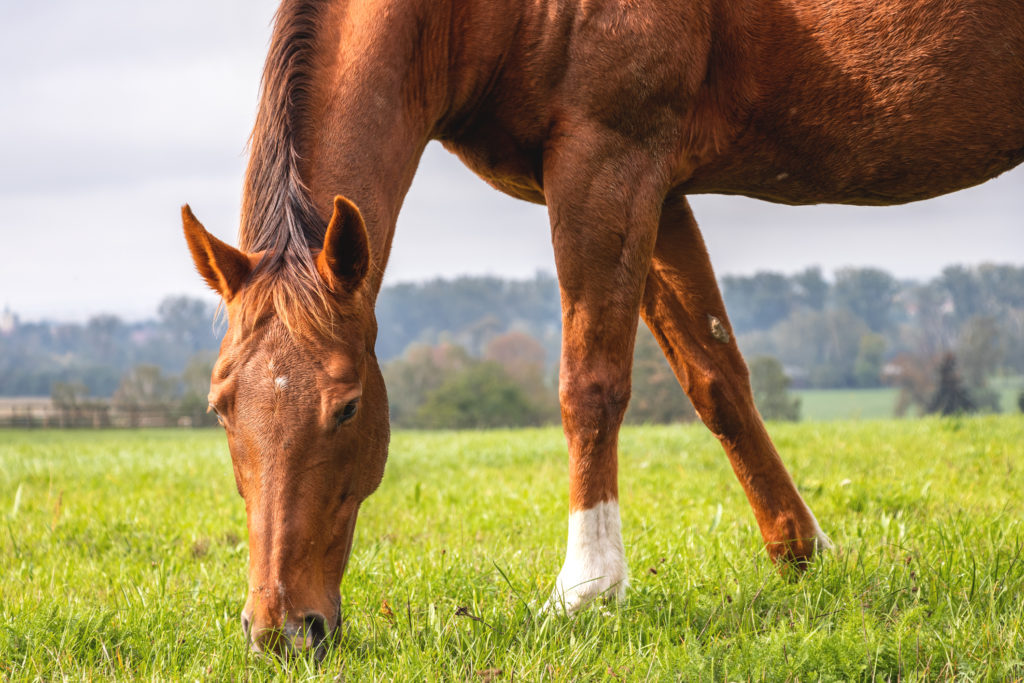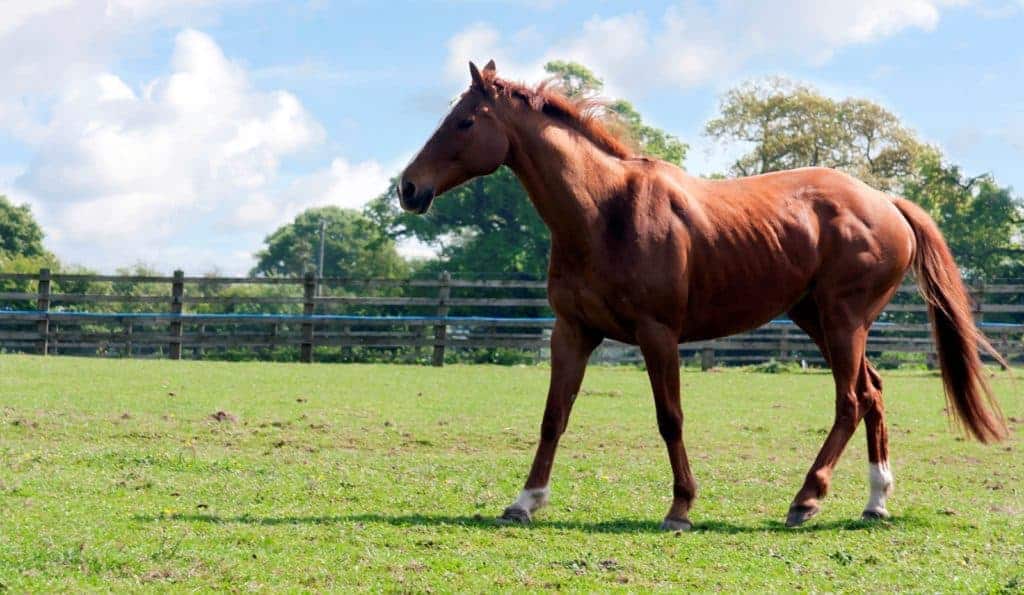
The Consequences of Vitamin E Deficiency in Horses
Dietary deficiency of vitamin E can lead to three specific neurologic and muscular diseases. Find out if your horse is getting enough.

Dietary deficiency of vitamin E can lead to three specific neurologic and muscular diseases. Find out if your horse is getting enough.

Read about the existing science behind acupuncture and what you should know before scheduling an appointment for your horse.

Researcher Dr. Carrie Finno of the University of California, Davis, explains the important role vitamin E plays in neuromuscular and reproductive health for horses.

University of Minnesota College of Veterinary Medicine researchers have launched a study investigating the genetic and management factors influencing muscle disease in horses. Find out how to get involved.

A horse appears healthy and sidepasses well to the right, but not to the left. Could he be in pain? A sports medicine practitioner shares his thoughts.

Dr. Brian Nielsen describes the best kind of exercise for foals.

Are young horses with poor or limited nutrition or exercise likely to develop problems later in life? If so, can these be reversed? Dr. Brian Nielsen responds.

My vet wants my 38-year-old on phenylbutazone forever. Is there anything else that could help him, with no side effects?

Taking a horse from a sedentary state to active working fitness can be a form of rehabilitation. However, there’s no one-size-fits-all program. Learn how to safely transition your horse into an exercise program.

What’s the long-term prognosis for a horse diagnosed with a fractured pelvis?

Researchers say the mutation responsible for the sometimes-fatal muscle condition immune-mediated myositis (or IMM) is just as common, if not more so, than at least two other well-known genetic diseases in Quarter Horses: HERDA and HYPP.

Some horses with neuromuscular disease could have a protozoan parasite Sarcocystis fayeri in their skeletal muscles, researchers learned.

Take a look at how adding studs to horseshoes can help horses navigate less-than-ideal footing.

Experts share information about the steps needed to identify PSSM, how to distinguish between the types, and recommendations for managing affected horses.

Is it cause for concern if a horse lies down frequently?

Researchers confirmed that ultrasound is a useful and economical screening tool to identify humeral stress fractures and can be used with radiography to monitor healing.
Stay on top of the most recent Horse Health news with
"*" indicates required fields